Our health professionals are specialists in the diagnosis & treatment of occupational injuries & diseases.
Why Seek an Occupational Medicine Physician?
Our expertise lies in preventing, diagnosing, and treating injuries and illnesses related to work. By utilizing environmental monitoring and analytical techniques, we can accurately assess workers’ exposure to potential health risks. Our services also include educating patients on their responsibilities, as well as ensuring compliance with notification requirements for employers. We are committed to delivering top-notch occupational medicine to promote and preserve good health in the workplace.
View Our Complete List of Occupational Medicine Services: Click Here
Occupational Medicine – Work-Related Injuries:
Carpal Tunnel Syndrome
Tendonitis
Muscle / Tendon strain
Hand Arm Vibration Syndrome
Inhalational Injuries
Ligament Sprain
Tension Neck Syndrome
Neck, Back, Shoulder, Knee Pain
Rotator Cuff Tendonitis
Epicondylitis
Radial Tunnel Syndrome
Digital Neuritis
Trigger Finger / Thumb
DeQuervain’s Syndrome
Mechanical Back Syndrome
Degenerative Disc Disease
Repetitive Motion Injuries
Repetitive Strain Disorders
Ruptured / Herniated Disc,
and many more
Occupational Medicine – Work-Related Diseases:
Asbestos Related Lung Disease
Carbon Monoxide Exposure
Contact Dermatitis
Latex Allergy
Lead, Mercury, other Metal Toxicity
Noise-Induced Hearing Loss
Occupational Asthma
Occupational Cancer
Solvent Toxicity
Occupational Medicine – Repetitive Use Injuries
Musculoskeletal Disorders (MSDs) are common injuries and disorders that affect the body’s movement and musculoskeletal system, including muscles, tendons, ligaments, nerves, discs, and blood vessels. Various risk factors contribute to the development of MSDs, so it is important to be aware of any aches or pains that may be related to these disorders. Symptoms of MSDs tend to worsen over time and may reoccur. It is crucial to pay attention to any pain that is triggered by specific tasks, motions, or repetitions, and not wait until it becomes severe before seeking help.
If you experience discomfort while working, remember to:
– Be mindful of how you position and use your body during daily tasks
– Ensure your workstation is set up correctly
– Avoid prolonged periods in one position
– Take regular breaks to stretch and move around
– Use furniture and equipment that suits your body
– Maintain a balanced exercise routine that includes cardio, strength training, and good posture.
By following these tips, you can minimize awkward positions and discomfort while working and reduce the risk of developing MSDs. Remember to report any pain or discomfort to your supervisor promptly for further assistance.
You Were Hurt on the Job, What Do You Do Now?
For any life threatening, medical emergencies, seek treatment at the nearest emergency room.
Notify your employer in writing as soon as possible to document your injury.
File a C-3 Form
Not all workers will qualify for Workers’ Compensation. We can help you understand your rights and benefits.

